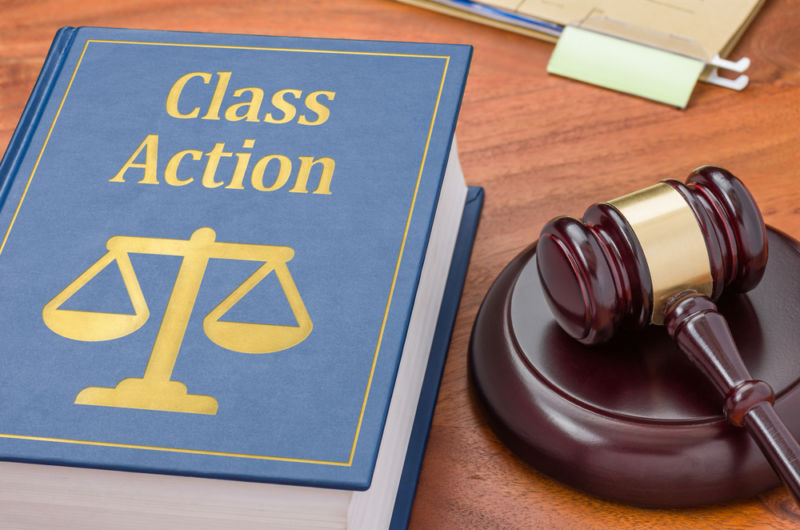Stamina in Numbers: Checking Out the Impact of Class Action Lawsuits
Wiki Article
Secret Aspects to Consider in Class Action Suits: Insights for Attorneys
Course action legal actions can be tough and complicated for lawyers to browse. From course accreditation demands to damages calculations and negotiation arrangements, there are numerous essential aspects that need to be thoroughly thought about. Recognizing these aspects and their effects is critical for legal representatives aiming to successfully represent their clients in class activity suits. By delving right into the details of course activity lawsuits, this discussion aims to provide valuable understandings for legal representatives seeking to navigate this elaborate legal landscape.Course Accreditation Requirements
To wage a class action claim, legal representatives need to browse via a series of rigorous class qualification demands. Course certification is a critical phase in the litigation process that figures out whether a team of complainants can be licensed as a course and wage their cases jointly. These requirements offer to make sure that class activities are appropriate and effective devices for dealing with disputes entailing numerous complainants.One of the key requirements for course qualification is numerosity. This criterion requires that the class be so countless that joinder of all members is unwise. While there is no fixed mathematical limit, courts normally take into consideration a class with greater than 40 members as sufficiently many. Additionally, commonness is an additional essential element in course certification. It calls for that there are inquiries of legislation or truth usual to the course, which have to predominate over individual problems.
Competence of depiction ensures that the agents will relatively and effectively secure the passions of the class participants. A course action need to additionally satisfy the need of superiority, suggesting that a class activity is a superior technique for adjudicating the dispute contrasted to various other offered techniques.
Browsing through these class accreditation requirements can be tough and complex for legal representatives. Understanding and meeting these needs are essential to efficiently seek a course activity lawsuit on part of a group of complainants.

Commonality of Insurance Claims
The next crucial aspect to think about in the class qualification procedure is the commonness of insurance claims among the plaintiffs. Commonness describes whether the course members share comparable legal issues and inquiries of truth that can be settled jointly. Simply put, it is essential to identify if there are common questions of law or fact that are central to the litigation and that predominate over any kind of private issues.To develop commonness, the plaintiffs have to show that there are accurate or lawful problems that are usual to the whole class. This can be attained by recognizing a typical program of conduct or a typical legal theory that underlies the insurance claims (Class action lawsuit). The presence of common concerns is very important since it advertises judicial effectiveness and economy by allowing a solitary decision to settle the concerns for the whole class
Nonetheless, it is essential to keep in mind that the commonality requirement does not necessitate that all the individual claims be the same. If there are still typical inquiries that bind the course with each other., distinctions in damages or private situations do not necessarily defeat commonness.

Damages Estimations
One vital element to take into consideration when determining damages in course action lawsuits is the precise assessment of financial losses sustained by the class participants. In order to identify the suitable amount of compensation, it is required to evaluate the level of damage experienced by each individual within the course. This can be a complex job, as it requires a comprehensive evaluation of various aspects, such as the nature and duration of the injury, the economic impact on the affected individuals, and any kind of other pertinent factors to consider.When evaluating monetary losses, it is necessary to take into consideration both the direct and indirect problems suffered by the class participants. Direct damages refer to the actual out-of-pocket expenditures incurred as an outcome of the defendant's actions. These might consist of medical expenses, residential property damages costs, or any other concrete financial losses. On the other hand, indirect problems include the abstract losses that are harder to quantify, such as psychological distress, loss of track record, or decreased lifestyle.
To determine damages precisely, attorneys must collect comprehensive evidence, including financial documents, specialist point of views, and testimonies from the class members. They might additionally require to engage monetary and financial specialists that can provide insights right into the long-term economic ramifications of the harm experienced.
Negotiation Negotiations
Throughout negotiation arrangements, lawyers should take part in tactical and mindful discussions to get to an equally reasonable resolution for all events associated with the class action suit (Class action lawsuit). Negotiation settlements are an important stage in the lawsuits process, where the parties attempt to get to a concession without going to trial. These negotiations require lawyers to employ their arrangement abilities, lawful knowledge, and understanding of the instance's toughness and weaknessesOne vital element to think about throughout settlement arrangements is the potential dangers and expenses connected with continuing to test. Attorneys must carefully evaluate the probability of success at trial and evaluate it against the prospective advantages of a negotiation. They ought to also take into consideration the potential time and sources that would certainly be called for to experience a test, in addition to the possible unfavorable attention that can result from see post a public test.
An additional key variable is the rate of interests and concerns of the course participants. Attorneys need to understand what the course members intend to achieve with the lawsuit and exactly how a settlement can address their complaints. By taking into consideration the class participants' viewpoints and speaking with them throughout the settlement process, attorneys can much better promote for their passions and guarantee that any kind of negotiation gotten to is reasonable and sufficient.
Moreover, lawyers need to advice be prepared to negotiate with the opposing event and their legal representatives. This calls for a deep understanding of the strengths and weak points of both sides' debates and a determination to compromise. Experienced arbitrators can leverage this expertise to find commonalities and craft imaginative solutions that fulfill the requirements of all parties included.
Effective Client Depiction
To successfully represent their clients in class activity lawsuits, lawyers should possess a thorough understanding of the instance and vigilantly advocate for their clients' interests. Reliable customer representation requires legal representatives to develop open lines of communication and preserve a solid attorney-client relationship throughout the whole litigation procedure.
Primarily, legal representatives must thoroughly examine the truths, lawful problems, and possible dangers related to the instance. This consists of performing a detailed investigation, reviewing pertinent papers, and talking to specialists if essential. By obtaining a deep understanding of the case, legal representatives can create a strategic method customized to their customers' objectives and demands.
Additionally, legal representatives have to proactively promote for their customers' rate of interests during all phases click this link of the legal action. This includes drafting convincing lawful arguments, carrying out thorough research, and offering compelling proof to sustain their customers' insurance claims. Attorneys need to additionally remain educated regarding current developments in class activity law and use this knowledge to enhance their clients' positions.
Along with legal campaigning for, reliable customer representation includes supplying regular updates, responding to concerns, and dealing with any type of problems that clients might have. Lawyers ought to be proactive in keeping their clients educated about the progression of the situation and any kind of significant advancements that may affect the end result.
Eventually, reliable client representation needs legal representatives to be thorough, receptive, and devoted to safeguarding their customers' rate of interests and civil liberties. By adopting a client-centered strategy, legal representatives can take full advantage of the chances of accomplishing a beneficial result in class activity suits.
Conclusion
To conclude, legal representatives included in class action claims ought to take into consideration crucial aspects such as course qualification needs, the commonness of insurance claims, problems calculations, negotiation arrangements, and efficient customer depiction. By very carefully resolving these aspects, attorneys can improve their chances of success in class activity legal actions and make certain that the rate of interests of their customers are safeguarded.
Understanding these variables and their ramifications is essential for attorneys aiming to properly represent their clients in course activity claims.To continue with a course activity claim, lawyers should navigate with a collection of rigorous class accreditation requirements. Class certification is a crucial phase in the litigation procedure that identifies whether a team of complainants can be licensed as a course and proceed with their cases collectively. A class activity have to also satisfy the requirement of superiority, suggesting that a course action is a superior technique for adjudicating the dispute contrasted to other available methods.
One critical facet to think about when calculating problems in course action legal actions is the precise assessment of economic losses sustained by the class participants.
Report this wiki page